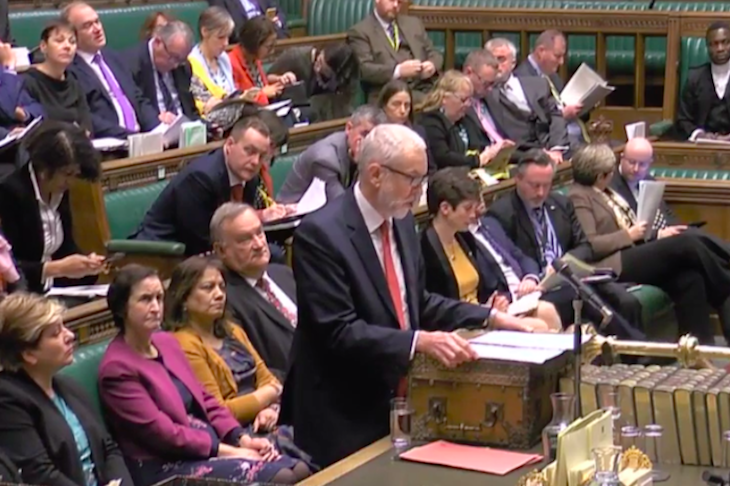Why didn’t Boris Johnson update the Commons on the tensions between Iran and the US, instead of sending his Defence Secretary Ben Wallace to give a statement this afternoon? Jeremy Corbyn thought this was worth complaining about when he responded, telling the Chamber that the Prime Minister was ‘hiding behind his Defence Secretary’. He demanded that Wallace explain ‘where the Prime Minister is and what he is doing that is so much more important than addressing parliament on the assassination of Iranian General Qassem Suleimani’.
Wallace’s retort was that Johnson was ‘running the country’. He also accused Corbyn of producing ‘the usual tripe about “this is about Trump, this is about America”,’ which he described as being ‘all the usual anti-imperialist guff’. His justification for Johnson not being there, aside from being busy running the country, was that ‘this Prime Minister actually believes in a cabinet government’, and in sending individual members of that cabinet to the Commons to explain the government’s position.
There is much truth in both of these points. While Wallace was speaking, Downing Street released the read-out of a call between Johnson and President Erdogan of Turkey. This included the phrases ‘importance of reducing tensions’ and ‘de-escalation’, as has been the case since the assassination took place. Wallace’s claim about Johnson’s approach to government is also correct: the Prime Minister is well-known as a delegator, someone who appoints ministers or deputies who he really trusts to be left to get on with it.
But of course it was also convenient to send Wallace in his place, firstly because Johnson has appeared on the back foot in this crisis, taking days to respond to the killing of Suleimani. It is also easier for the Defence Secretary to make a statement on this crisis more about the operational work the government is doing, rather than why the response has been so carefully muted and limited to phrases like ‘de-escalation’. Corbyn was naturally complaining about this because, as Wallace said, the Labour leader doesn’t like any action that involves the West and particularly the United States. But the Prime Minister would have to answer much harder questions on whether the tone of his response has been the right one, or whether it would be more effective to warn President Trump that attacking cultural sites, as he has threatened to do, would constitute a war crime. It may well be that this is the right approach with a president who is so famously sensitive. But it would be useful for MPs to probe that.







Comments